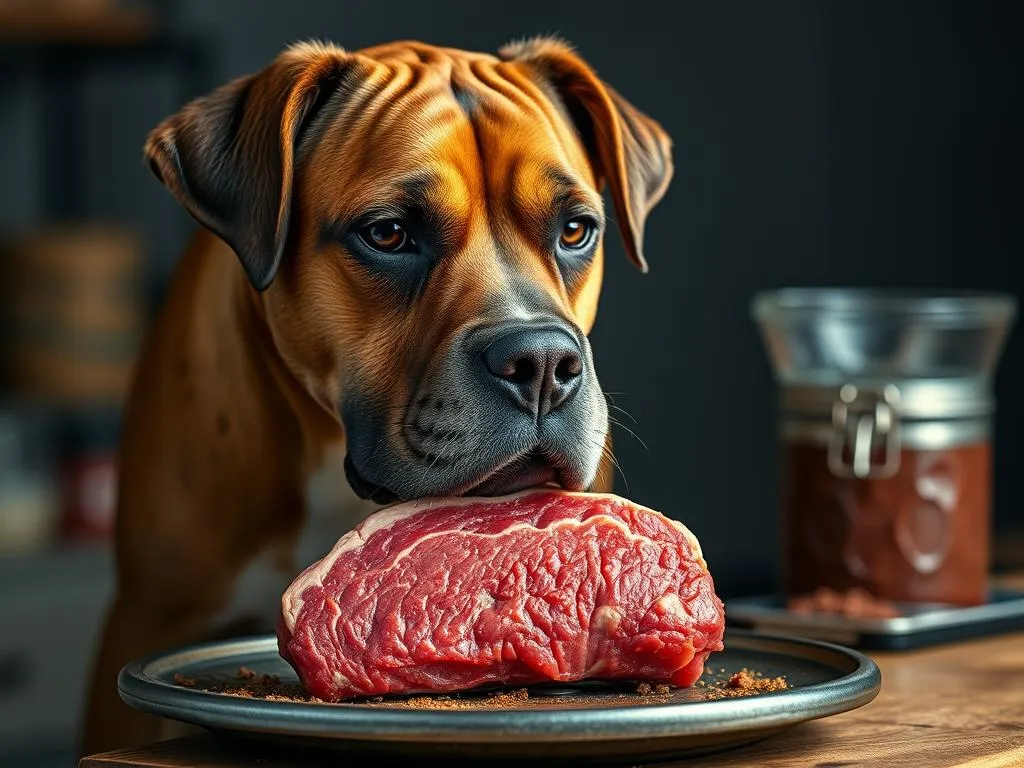
Introduction
Maintaining a dog’s health is fundamental to ensuring a long and happy life for our furry companions. Regular veterinary care, a balanced diet, and attentive owners help mitigate common health issues that can arise. Among the various dietary options available to dog owners, one item that has gained attention is meat tenderizer. This article explores the benefits and considerations of using meat tenderizer for dogs, including its composition, potential advantages, and possible risks.
Understanding Dog Health Care
Importance of Regular Health Check-Ups
Regular health check-ups are crucial for dogs, just as they are for humans. Routine veterinary visits help diagnose health issues early, enabling prompt intervention. Vaccinations and preventative care are part of these visits, shielding dogs from preventable diseases and ensuring their overall well-being.
Common Health Issues in Dogs
Despite our best efforts, dogs can face various health issues, including obesity, dental disease, and allergies. Recognizing the signs of illness—such as changes in appetite, lethargy, or unusual behaviors—can be key to early diagnosis.
Role of Diet in Dog Health
Diet plays a vital role in maintaining a dog’s health. A balanced diet tailored to a dog’s age, breed, and health condition is essential. Quality nutrition supports not only physical health but also mental well-being, helping dogs to lead active and fulfilling lives.
What is Meat Tenderizer?
Composition of Meat Tenderizer
Meat tenderizer is a culinary product designed to break down muscle fibers in meat, making it softer and easier to chew. The most common ingredient in meat tenderizers is papain, an enzyme derived from papaya, along with bromelain from pineapple and various salt and spice components. These enzymes work by breaking down proteins, helping to improve digestibility.
Types of Meat Tenderizers
Meat tenderizers can be broadly categorized into natural and chemical-based types. Natural tenderizers, such as those containing papaya or pineapple extracts, are considered healthier alternatives. On the other hand, some commercial brands may include artificial additives or preservatives. Familiarizing yourself with the ingredients of popular brands can help make informed choices.
Benefits of Meat Tenderizer for Dogs
Using Meat Tenderizer in Dog Diets
One of the key benefits of using meat tenderizer for dogs is enhancing the flavor of their food, particularly for picky eaters. Dogs that are reluctant to eat can benefit from the added taste, encouraging them to consume their meals. Moreover, certain ingredients in meat tenderizers may provide nutritional benefits, such as aiding digestion.
Therapeutic Uses
The enzymatic properties of meat tenderizers can offer therapeutic benefits. For dogs with specific health conditions, such as pancreatitis, a diet supplemented with meat tenderizer may help improve digestion and nutrient absorption. However, it’s essential to consult a veterinarian before making any dietary changes for therapeutic reasons.
Risks and Considerations
Potential Side Effects
While meat tenderizer for dogs can have benefits, it’s important to be aware of potential side effects. Some dogs may experience allergic reactions to specific ingredients, while others might suffer from digestive issues, such as upset stomach or diarrhea.
Dosage and Administration
When incorporating meat tenderizer into your dog’s diet, proper dosage is key. The recommended amount can vary based on the size and breed of your dog. Generally, a small pinch is sufficient for smaller dogs, while larger breeds may require a slightly higher amount. Always mix it thoroughly with their food to ensure even distribution.
Veterinary Consultation
Before introducing meat tenderizer into your dog’s diet, discussing it with a veterinarian is crucial. They can provide personalized advice based on your dog’s health history and dietary needs. For some dogs with certain medical conditions, avoiding meat tenderizer may be necessary.
Alternatives to Meat Tenderizer
Natural Flavor Enhancers
If you’re hesitant to use meat tenderizer for dogs, there are several natural flavor enhancers you can consider. Herbs and spices such as parsley, turmeric, and ginger can add flavor and offer additional health benefits. Always ensure that any herbs or spices you choose are safe for dogs.
Commercial Dog Food Options
There are high-quality commercial dog foods designed to be palatable for even the pickiest eaters. Look for options that are rich in protein, have minimal fillers, and incorporate whole food ingredients. Reading labels and researching brands can help you choose the right food for your dog.
Conclusion
In summary, understanding the use of meat tenderizer for dogs involves recognizing both its potential benefits and risks. While it can enhance flavor and aid digestion for some dogs, it should be used judiciously and in consultation with a veterinarian. Prioritizing overall health care by ensuring regular check-ups, a balanced diet, and attentive care will ultimately lead to a healthier, happier dog.
FAQs
Can all dogs eat meat tenderizer?
Not all dogs can tolerate meat tenderizer. Dogs with specific allergies or digestive issues may experience adverse reactions. Always consult with a veterinarian before adding it to your dog’s diet.
How often can I use meat tenderizer in my dog’s food?
Moderation is key. It’s best to use meat tenderizer occasionally rather than as a daily supplement, especially if your dog is not a picky eater.
Are there specific breeds that should avoid meat tenderizer?
Some breeds may be more susceptible to allergies or digestive issues. Always consult with a veterinarian to determine the best dietary practices for your specific breed.
What should I do if my dog has a negative reaction to meat tenderizer?
If your dog shows any adverse reactions after consuming meat tenderizer, such as vomiting or diarrhea, discontinue use immediately and consult your veterinarian.
By understanding the role of meat tenderizer for dogs, pet owners can make informed decisions about their dog’s diet while ensuring their overall health and well-being.









